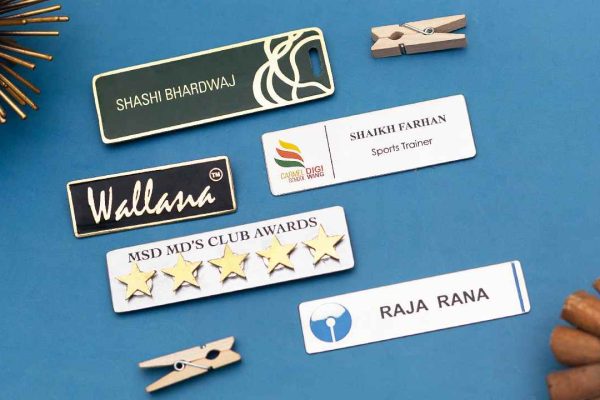There are times in life when you start to feel bored. Sometimes it’s with the little things; a conversation topic or trouble passing the time. Sometimes you realize you’re bored with one of the big things; such as your career.
When this happens, you start thinking about options. What other things could you do, what would interest you more, or what would provide you with more pleasure?
Becoming a professional event presenter can appeal to some people, especially if you are confident and sociable, and enjoy having a large audience. However, the career requires more than these 3 traits. It’s best to know all the crucial information about this profession first. Talking to a crowd of 50 to 50,000 can be challenging if you do not have the qualities of a good event MC.
Read on to find out the skills you’ll need to hone, and what the career involves.
Taking the Plunge
From the onset, it would be essential to go through career transition coaching to help discern that the career that you are considering transitioning to is the right fit for your personality. When you’ve determined that you really are suited to becoming a presenter, then you still have to do your homework. You can’t just grab a mic and expect to do a great job without ample preparation.
Also Read: How to Take Care of Your Voice as an Emcee
To help you make your presenter dreams come true, here are some tips that will help you become a more effective presenter:
1. Get background information.
When you want to be a successful presenter, then you have to learn how to do the right research.
Who invited you? Learn about the organization, its mission, vision, and what the company’s goals are for the event that they asked you to host. Request a meeting with their marketing or production team so you are all aligned with the deliverables for the show.
Who are you talking to? Know who your audience will be so you can craft specific messages that will resonate with the crowd. You need to know them to be able to establish rapport and hold their attention while you are on stage.
Who are the guests? If there are invited guests like speakers, panelists, or resource persons, take time to look them up. Professional information about them will help you in formulating smart questions or coming up with witty repartees.
What is the topic of the event? Know the main message of the event that you are presenting. The more you master the topic, the more will you have command of the conversation or direction of the show.
2. Practice, practice, and practice some more.
Even professional presenters who have gone on stage countless times still need to find time to practice.
Practicing the lines will help you run through the program and see if there are holes that need to be fixed. Going through your lines with a presentation clicker ahead of time will also allow you to work out the proper timing and pauses, as needed. If you are not familiar with vocabulary related to the event and its related industry, then practicing will give you time to know what it all means and how each word is pronounced.
It is also ideal to practice with the whole team. Huge events usually go through a technical run through to make sure that everything flows as smoothly as possible on the day.
3. Take lessons.
Continue to learn. Enroll in voice lessons or acting workshops. This way, you can hone your speaking and presentation skills.
Voice workshops will help you use techniques that will enhance your voice, like its depth, projection or timbre. You can even learn proper breathing, pausing, phrasing, and rounding.
Acting workshops will encourage you to be more at ease with your movements. It will help refine your posture, teach you how to powerfully use your hands or to make use of body language when presenting on stage.
4. Use your words.
Words are your currency. Use them masterfully. Tell stories that will move your audience. Tell stories that will make you memorable.
Avoid telling jokes as humor can fall flat depending on the audience. A bad joke can ruin the mood (and put a dent in your career) so steer clear, if you can.
Use your words to tell engaging stories that your audience can relate to. Ask intelligent questions. Amuse with wit. Do away with non-essential and boring information.
5. Be genuine.
Be genuinely interested in what you’re doing. Faking it will show and your audience will know.
Be yourself but avoid being boastful or talking about yourself too much, though. The event is not about you. You are presenting the event and you must do so by highlighting the message.
Towards a Different Path
When you find yourself at a crossroads when it comes to your career, take the necessary steps to really identify what you want. If it is being a professional presenter, then have an open mind and heart. Learn what you can and learn continually. Do not stop learning just because you have booked a hundred gigs. There is always something that you can learn from every experience.
The above mentioned tips, when taken in good faith, will help you towards the path that you have chosen. Heed them and you will find that the road will be easier. Ignore them and you might stumble. Remember that being a good presenter is also being a good follower. And when you are a good follower, you can also be a great leader.
AUTHOR BIO
Hisham Wyne is an internationally recognised MC, broadcaster, presenter and moderator who helps the world’s best-known brands create memorable occasions. He regularly hosts conferences, panel sessions, gala dinners and award ceremonies for some of the world’s best brands. With 150+ events under his belt, Hisham is the professional speaker that brands and agencies turn to when wanting to interview, engage and entertain government VVIPs and Hollywood celebrities.





